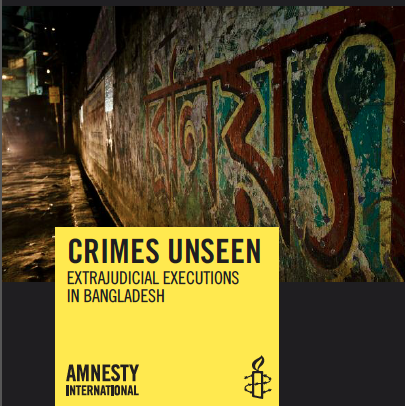Another blogger. Ananta Bijoy Das, murdered today. Police too busy beating up students to notice:
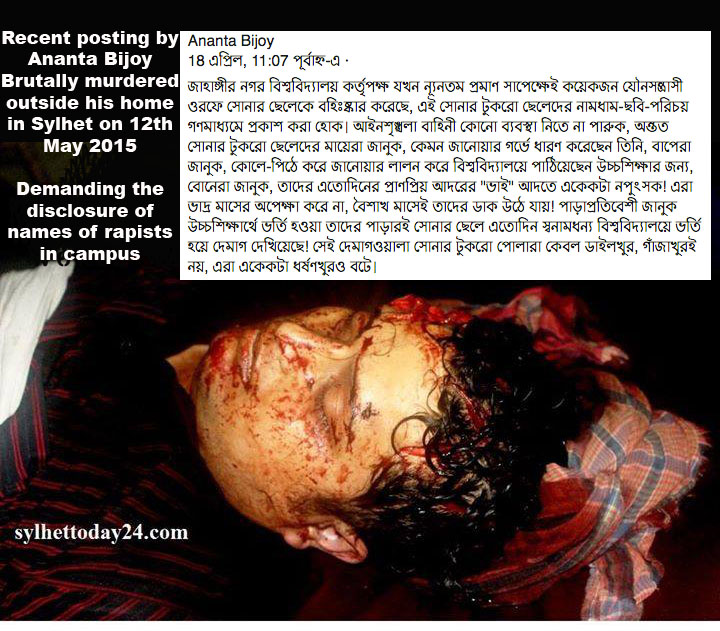 ———————————————————————————————————-
———————————————————————————————————-
Tolerating Death in a Culture of Intolerance | Economic and Political Weekly.
COMMENTARY Economic & Political Weekly EPW MARCH 21, 2015 vol l no 12 11 by?Shahidul Alam
The daylight murder of Bangladeshi blogger Avijit Roy in Dhaka on 26 February reflects the culture of fear and intolerance that has built up in the country over the last few decades. As a result, the middle ground between the extremes has disappeared.
Returning home with your wife, from a book fair where you have been signing autographs, seems a peaceful enough activity. It was in the heart of the university area, and it was not late. The footpath next to Ramna Park, where the 1971 surrender document had been signed, was full of people. Shahbagh Police Thana was nearby, and a police barricade designed to keep visitors to the mela safe, was only a few yards away. Hardly the scene crime stories are made of.
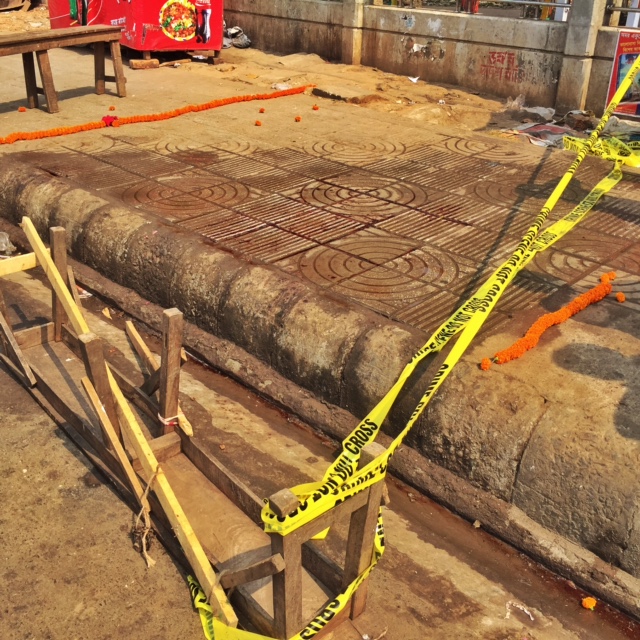 Continue reading “Tolerating Death in a Culture of Intolerance”
Continue reading “Tolerating Death in a Culture of Intolerance”
Tag: murder
Interview of Rafiur Rabbi by Shahidul Alam
Interview: Shahidul Alam and Rahnuma Ahmed
Transcript: Saydia Gulrukh Kamal
Translation: Hana Shams Ahmed
Interview of Rafiur Rabbi, father of murdered teenager Tanvir Mohammad Toki of Narayanganj. from Shahidul Alam on Vimeo.
Transcript of interview of cultural activist Rafiur Rabbi of Narayanganj. The body of Rabbi’s teenage son, a brilliant student from Narayanganj, was found in the river. He had been tortured. It is generally felt in Narayanganj (as Rabbi himself feels), that this was done by Shameem Osman, considered the godfather of Narayanganj, to stop Rabbi from impeding his (Shameem’s) business.
The murder of Toki follows a similar pattern where over the years, people who have resisted activities by Shameem Osman’s family have been murdered.
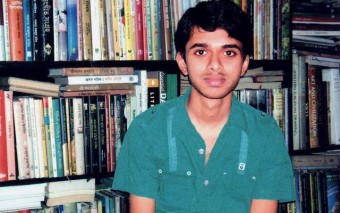
Shahidul Alam: Rabbi bhai. A father who has lost his child, it is very difficult to question but I am questioning you because, you are a special person, your role is different, we do not see Towki as your child only, we see him as our child too, we see him as Bangladesh?s child, and that is why we need to find out. If you could tell us a few things about Towki at first.
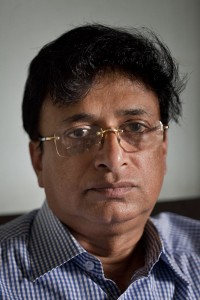
Rafiur Rabbi: His mother will be able to say more about Toki than I will be able to, what I can say from my position is that, Toki was different from 8/10 other boys. His thoughts and concerns were completely different. ? Continue reading “Interview of Rafiur Rabbi by Shahidul Alam”
NARAYANGANJ GODFATHER & FAMILY BEHIND TAQI'S GRUESOME KILLING
COME AND JOIN 29TH MARCH PROTEST RALLY! RAISE YOUR VOICES, ITS NOW OR NEVER!!
Shongkhubdho Nagorik Shomaj: Protest Rally Against Taqi Murder on Wednesday March 29 at 4pm at Raju Bhashkorjo, Dhaka University.
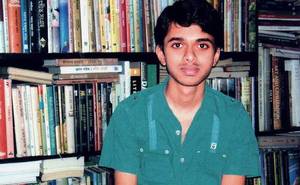
Seventeen year-old Tanwir Muhammad Taqi, a meritorious A-level student, was found dead on March 8, 2013, two days after he had gone missing, on the banks of the Sitalakhya river in Narayanganj. He had been brutally murdered.
I have seen photos of his dead body, they bear the marks of gruesome torture. Other activist friends Taslima Akhter (photographer, garment labour activist), Shahidul Alam (photographer) and Saydia Gulrukh (anthropologist) who have, like me, seen the photographs, have spent sleepless nights.
Taqi (name spelt variously in the press) was admired and loved and not known to have enemies.

But his father, Rafiur Rabbi did, and does. A public figure widely respected for his honesty, fearlessness and uncompromising stance, Rabbi has led innumerable social and people power movements; cumulatively, they challenge the tight grip of Shameem Osman and his family, who are Narayanganj’s “godfathers”, who have ruled the port city for 3 generations through payoffs, kickbacks, violence and terror.
Narayanganj city’s popular mayor Dr Selina Hayat Ivy and Rabbi (convenor, Narayanaganj Ganajagoron Mancha; vice president Narayanganj Nagorik Committee; convenor, district level National Committee to Protect Oil, Gas, Mineral Resources, Power and Ports?) ? have publicly held Shameem Osman and his family responsible for the killing, the most recent of nearly fifty over the last one and a half years.
The reign of terror must STOP! Play your part. Come and join the rally.
In solidarity,
Rahnuma Ahmed, writer, columnist
Professor Naseem Akhter Hussain, Jahangirnagar University
Professor Anu Muhammad, Jahangirnagar University
Masud Imran, teacher, Jahangirnagar University
Mahmudul Sumon, teacher, Jahangirnagar University
Nasrin Khandoker, teacher, Jahangirnagar University
Arup Rahee, singer, poet
Shipra Bose, development activist
Taslima Akhter, photographer
Udisa Islam, journalist
An ode to Biswajit
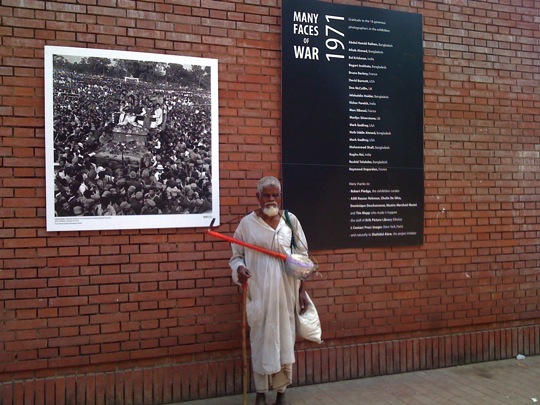
He stopped at every print. Getting close to scrutinise every character, pausing more at some that perhaps stirred a memory. He smiled broadly when I approached him. ?eto amar chobi tulsen? (it is me you?ve photographed) he said. This was his war. He remembered the pain the terror, the joy. He had never applied for registration. No card, no land, no perks. He had never been asked to speak at a dais extolling his glory. Victory being won, he had drifted out the way he had drifted in.
He was a Baul singer, living off the alms given by visitors to Suhrwardy Uddayan, where the deed of surrender had been signed on the 16th December 1971. He had no regrets for his lack of wealth, or for not having had his share of the spoils of war. It was our departure from the values that had driven him and his fellow muktijodhdhas (freedom fighters) that saddened him. He had a great love for Mujib, and felt we had let him down.
Pathshala tutor brutally killed
Pathshala mourns the death of Sagar, a well loved teacher at the Multimedia Department of Pathshala South Asian Media Academy and his journalist wife Meherun Runi who were killed in mysterious circumstances on early Saturday morning the 11th February 2012. Sagar was the news editor of Masranga Television and?also worked with Deutsche Welle Bangla Service, Ittefaq, Jugantor and Sangbad. Runi was a senior reporter in ATN Bangla Television. While there are many speculations, it is not known why or who killed the journalist couple.?The exact time or the circumstances leading to their death has not been confirmed either.
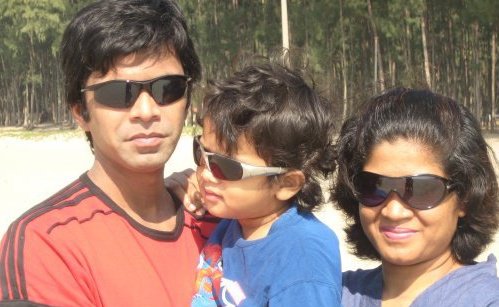
Mahi Sarwar Megh, their five year old son discovered the bodies of his parents in the morning and called his grandmother. Both had apparently been repeatedly stabbed in their??fourth-floor flat of a five storied building (58/A/2) in West Rajabazar.
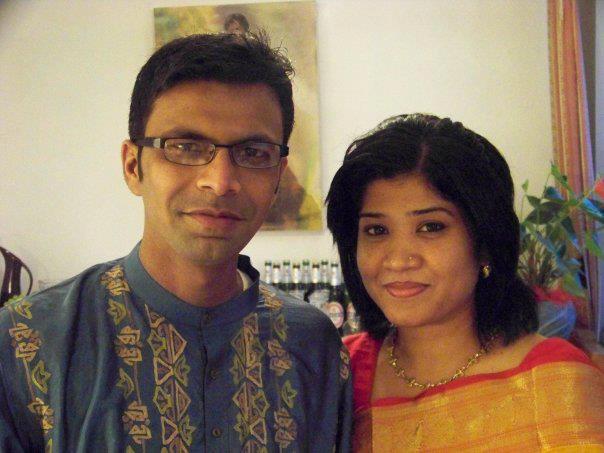
The first namaz-e-janaza of Sarwar and Runi was held at the?Dhaka?Reporters Unity office at Segunbagicha in the capital.
They couple will be buried later at Azimpur graveyard after two more namaz-e-janazas at Maasranga and ATN offices.

Crimes unseen: Extrajudicial executions in Bangladesh
Subscribe to ShahidulNews
Bangladeshi journalist Masum Fakir was arrested and tortured by the RAB?? Masum Fakir
24 August 2011
Crimes unseen: Extrajudicial executions in Bangladesh also documents how the Rapid Action Battalion (RAB) justify these killings as accidental or as a result of officers acting in self-defence, although in reality many victims are killed following their arrest.
?Hardly a week goes by in Bangladesh without someone being shot by RAB with the authorities saying they were killed or injured in ?crossfire? or a ?gun-fight?. However the authorities choose to describe such incidents, the fact remains that they are suspected unlawful killings,? said Abbas Faiz, Amnesty International?s Bangladesh Researcher.
The RAB has been implicated in the killing of at least 700 people since its inception in 2004. Any investigations that have been carried out into those killed have either been handled by RAB or by a government-appointed judicial body but the details of their methodology or findings have remained secret. They have never resulted in judicial prosecution. RAB has consistently denied responsibility for unlawful killings and the authorities have accepted RAB claims.
?It is appalling that virtually all alleged instances of illegal RAB killings have gone unchallenged or unpunished. There can be no justice if the force is the chief investigator of its own wrong-doings. Such investigations cannot be impartial. There is nothing to stop the RAB from destroying the evidence and engineering the outcome,? said Abbas Faiz.
Former detainees also told Amnesty International how they were routinely tortured in custody, suffering beatings, food and sleep deprivation, and electric shocks.
At least 200 alleged RAB killings have occurred since January 2009 when the current Awami League government came to power, despite the Prime Minister?s pledge to end extrajudicial executions and claims by the authorities that no extrajudicial executions were carried out in the country in this period.
In addition, at least 30 people have been killed in other police operations since early 2010, with the police also portraying them as deaths in ?shoot-outs? or ?gun-fights?.
?By failing to take proper judicial action against RAB, successive Bangladeshi governments have effectively endorsed the force?s claims and conduct and given it carte blanche to act with impunity. All we have seen from the current government are broken promises or worse, outright denial,? said Abbas Faiz.
In many cases the investigations blamed the victims, calling them criminals and portraying their deaths as justified even though available public evidence refuted that.
?The Bangladesh authorities must act now and take concrete steps to protect people from the alleged unlawful killings by their security forces .The government must ensure independent and impartial investigations into all suspected cases of extrajudicial executions and bring those responsible to justice.?
Bangladesh?s police and RAB continue to receive a wide range of military and police equipment from overseas, including from Austria, Belgium, China, Czech Republic, Italy, Poland, Russia, Slovakia, Turkey and USA. In addition, diplomatic cables from the US Embassy in Dhaka, obtained and released by Wikileaks in December 2010 alleged that UK police had been training RAB officers.
Amnesty International calls upon these countries to refrain from supplying arms to Bangladesh that will be used by RAB and other security forces to commit extrajudicial executions and other human rights violations. Any country that knowingly sends arms or other supplies to equip a force which systematically violates human rights may itself bear some responsibility for those violations.
RAB was created in March 2004, to much public acclaim, as the government?s response to a breakdown in law and order, particularly in western and central Bangladesh.
In Rajshahi, Khulna and Dhaka districts, armed criminal groups or powerful mercenary gangs colluded with local politicians to run smuggling rings or extort money from local people. Within months of its creation, RAB?s operations were characterized by a pattern of killings portrayed by the authorities as ?deaths in crossfire?, many of which had the hallmarks of extrajudicial executions.
They usually occurred in deserted locations after a suspect?s arrest. In some cases, there were witnesses to the arrests, but RAB authorities maintained that victims had been killed by ?crossfire?, or in ?shoot-outs? or ?gunfights?.
Bangladesh?s two main political parties ? the Bangladesh Nationalist Party and the Awami League ? have shown no commitment to limiting the powers of RAB.
In the first couple of months of coming to office, the Prime Minister spoke of a ?zero tolerance? policy toward extrajudicial executions. Other government authorities repeated her pledge. These hopes were dashed in late 2009 when the authorities, including the Home Minister, began to claim that there were no extrajudicial executions in the country.
Related links:
An exhibition on extra judicial killings by Shahidul Alam
Guardian report on torture by MI5 in collaboration with RAB
Rahnuma Ahmed’s column on the shooting of Limon Hossain by RAB
Amensty’s Abbas Faiz on RAB impunity
Rahnuma Ahmed’s column on militarisation and the women’s movement
Rahnuma Ahmed’s column on the ‘death squad’
Guardian article on ‘death squad’ being trained by UK Government
Guardian claim of Briton being tortured in Bangladesh
Representing “Crossfire”: Politics, Art and Photography
An Assassination?s Long Shadow
Subscribe to ShahidulNews
By Adam Hochschild
Published: January 16, 2011 in the New York Times
TODAY, millions of people on another continent are observing the 50th anniversary of an event few Americans remember, the assassination of Patrice Lumumba. A slight, goateed man with black, half-framed glasses, the 35-year-old Lumumba was the first democratically chosen leader of the vast country, nearly as large as the United States east of the Mississippi, now known as the Democratic Republic of Congo.
This treasure house of natural resources had been a colony of Belgium, which for decades had made no plans for independence. But after clashes with Congolese nationalists, the Belgians hastily arranged the first national election in 1960, and in June of that year King Baudouin arrived to formally give the territory its freedom.
?It is now up to you, gentlemen,? he arrogantly told Congolese dignitaries, ?to show that you are worthy of our confidence.?
The Belgians, and their European and American fellow investors, expected to continue collecting profits from Congo?s factories, plantations and lucrative mines, which produced diamonds, gold, uranium, copper and more. But they had not planned on Lumumba.
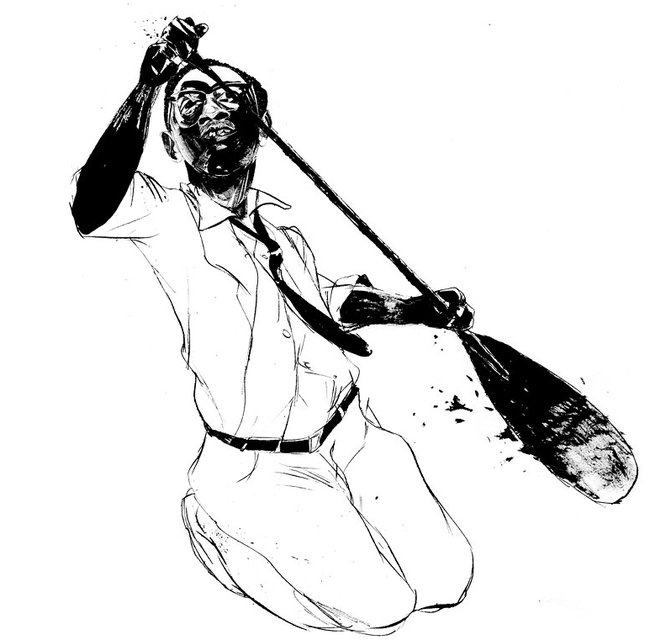
A dramatic, angry speech he gave in reply to Baudouin brought Congolese legislators to their feet cheering, left the king startled and frowning and caught the world?s attention. Lumumba spoke forcefully of the violence and humiliations of colonialism, from the ruthless theft of African land to the way that French-speaking colonists talked to Africans as adults do to children, using the familiar ?tu? instead of the formal ?vous.? Political independence was not enough, he said; Africans had to also benefit from the great wealth in their soil.
Continue reading “An Assassination?s Long Shadow”
Rachel's war
Subscribe to ShahidulNews
This weekend 23-year-old American peace activist Rachel Corrie was crushed to death by a bulldozer as she tried to prevent the Israeli army destroying homes in the Gaza Strip. In a remarkable series of emails to her family, she explained why she was risking her life
The Guardian, Tuesday 18 March 2003
Article history
February 7 2003
Hi friends and family, and others,
I have been in Palestine for two weeks and one hour now, and I still have very few words to describe what I see. It is most difficult for me to think about what’s going on here when I sit down to write back to the United States. Something about the virtual portal into luxury. I don’t know if many of the children here have ever existed without tank-shell holes in their walls and the towers of an occupying army surveying them constantly from the near horizons. I think, although I’m not entirely sure, that even the smallest of these children understand that life is not like this everywhere. An eight-year-old was shot and killed by an Israeli tank two days before I got here, and many of the children murmur his name to me – Ali – or point at the posters of him on the walls. The children also love to get me to practice my limited Arabic by asking me, “Kaif Sharon?” “Kaif Bush?” and they laugh when I say, “Bush Majnoon”, “Sharon Majnoon” back in my limited arabic. (How is Sharon? How is Bush? Bush is crazy. Sharon is crazy.) Of course this isn’t quite what I believe, and some of the adults who have the English correct me: “Bush mish Majnoon” … Bush is a businessman. Today I tried to learn to say, “Bush is a tool”, but I don’t think it translated quite right. But anyway, there are eight-year-olds here much more aware of the workings of the global power structure than I was just a few years ago.
Nevertheless, no amount of reading, attendance at conferences, documentary viewing and word of mouth could have prepared me for the reality of the situation here. You just can’t imagine it unless you see it – and even then you are always well aware that your experience of it is not at all the reality: what with the difficulties the Israeli army would face if they shot an unarmed US citizen, and with the fact that I have money to buy water when the army destroys wells, and the fact, of course, that I have the option of leaving. Nobody in my family has been shot, driving in their car, by a rocket launcher from a tower at the end of a major street in my hometown. I have a home. I am allowed to go see the ocean. When I leave for school or work I can be relatively certain that there will not be a heavily armed soldier waiting halfway between Mud Bay and downtown Olympia at a checkpoint with the power to decide whether I can go about my business, and whether I can get home again when I’m done. As an afterthought to all this rambling, I am in Rafah: a city of about 140,000 people, approximately 60% of whom are refugees – many of whom are twice or three times refugees. Today, as I walked on top of the rubble where homes once stood, Egyptian soldiers called to me from the other side of the border, “Go! Go!” because a tank was coming. And then waving and “What’s your name?”. Something disturbing about this friendly curiosity. It reminded me of how much, to some degree, we are all kids curious about other kids. Egyptian kids shouting at strange women wandering into the path of tanks. Palestinian kids shot from the tanks when they peak out from behind walls to see what’s going on. International kids standing in front of tanks with banners. Israeli kids in the tanks anonymously – occasionally shouting and also occasionally waving – many forced to be here, many just agressive – shooting into the houses as we wander away.
I’ve been having trouble accessing news about the outside world here, but I hear an escalation of war on Iraq is inevitable. There is a great deal of concern here about the “reoccupation of Gaza”. Gaza is reoccupied every day to various extents but I think the fear is that the tanks will enter all the streets and remain here instead of entering some of the streets and then withdrawing after some hours or days to observe and shoot from the edges of the communities. If people aren’t already thinking about the consequences of this war for the people of the entire region then I hope you will start.
My love to everyone. My love to my mom. My love to smooch. My love to fg and barnhair and sesamees and Lincoln School. My love to Olympia.
Rachel
February 20 2003
Mama,
Now the Israeli army has actually dug up the road to Gaza, and both of the major checkpoints are closed. This means that Palestinians who want to go and register for their next quarter at university can’t. People can’t get to their jobs and those who are trapped on the other side can’t get home; and internationals, who have a meeting tomorrow in the West Bank, won’t make it. We could probably make it through if we made serious use of our international white person privilege, but that would also mean some risk of arrest and deportation, even though none of us has done anything illegal.
The Gaza Strip is divided in thirds now. There is some talk about the “reoccupation of Gaza”, but I seriously doubt this will happen, because I think it would be a geopolitically stupid move for Israel right now. I think the more likely thing is an increase in smaller below-the-international-outcry-radar incursions and possibly the oft-hinted “population transfer”.
I am staying put in Rafah for now, no plans to head north. I still feel like I’m relatively safe and think that my most likely risk in case of a larger-scale incursion is arrest. A move to reoccupy Gaza would generate a much larger outcry than Sharon’s assassination-during-peace-negotiations/land grab strategy, which is working very well now to create settlements all over, slowly but surely eliminating any meaningful possibility for Palestinian self-determination. Know that I have a lot of very nice Palestinians looking after me. I have a small flu bug, and got some very nice lemony drinks to cure me. Also, the woman who keeps the key for the well where we still sleep keeps asking me about you. She doesn’t speak a bit of English, but she asks about my mom pretty frequently – wants to make sure I’m calling you.
Love to you and Dad and Sarah and Chris and everybody.
Rachel
February 27 2003
(To her mother)
Love you. Really miss you. I have bad nightmares about tanks and bulldozers outside our house and you and me inside. Sometimes the adrenaline acts as an anesthetic for weeks and then in the evening or at night it just hits me again – a little bit of the reality of the situation. I am really scared for the people here. Yesterday, I watched a father lead his two tiny children, holding his hands, out into the sight of tanks and a sniper tower and bulldozers and Jeeps because he thought his house was going to be exploded. Jenny and I stayed in the house with several women and two small babies. It was our mistake in translation that caused him to think it was his house that was being exploded. In fact, the Israeli army was in the process of detonating an explosive in the ground nearby – one that appears to have been planted by Palestinian resistance.
This is in the area where Sunday about 150 men were rounded up and contained outside the settlement with gunfire over their heads and around them, while tanks and bulldozers destroyed 25 greenhouses – the livelihoods for 300 people. The explosive was right in front of the greenhouses – right in the point of entry for tanks that might come back again. I was terrified to think that this man felt it was less of a risk to walk out in view of the tanks with his kids than to stay in his house. I was really scared that they were all going to be shot and I tried to stand between them and the tank. This happens every day, but just this father walking out with his two little kids just looking very sad, just happened to get my attention more at this particular moment, probably because I felt it was our translation problems that made him leave.
I thought a lot about what you said on the phone about Palestinian violence not helping the situation. Sixty thousand workers from Rafah worked in Israel two years ago. Now only 600 can go to Israel for jobs. Of these 600, many have moved, because the three checkpoints between here and Ashkelon (the closest city in Israel) make what used to be a 40-minute drive, now a 12-hour or impassible journey. In addition, what Rafah identified in 1999 as sources of economic growth are all completely destroyed – the Gaza international airport (runways demolished, totally closed); the border for trade with Egypt (now with a giant Israeli sniper tower in the middle of the crossing); access to the ocean (completely cut off in the last two years by a checkpoint and the Gush Katif settlement). The count of homes destroyed in Rafah since the beginning of this intifada is up around 600, by and large people with no connection to the resistance but who happen to live along the border. I think it is maybe official now that Rafah is the poorest place in the world. There used to be a middle class here – recently. We also get reports that in the past, Gazan flower shipments to Europe were delayed for two weeks at the Erez crossing for security inspections. You can imagine the value of two-week-old cut flowers in the European market, so that market dried up. And then the bulldozers come and take out people’s vegetable farms and gardens. What is left for people? Tell me if you can think of anything. I can’t.
If any of us had our lives and welfare completely strangled, lived with children in a shrinking place where we knew, because of previous experience, that soldiers and tanks and bulldozers could come for us at any moment and destroy all the greenhouses that we had been cultivating for however long, and did this while some of us were beaten and held captive with 149 other people for several hours – do you think we might try to use somewhat violent means to protect whatever fragments remained? I think about this especially when I see orchards and greenhouses and fruit trees destroyed – just years of care and cultivation. I think about you and how long it takes to make things grow and what a labour of love it is. I really think, in a similar situation, most people would defend themselves as best they could. I think Uncle Craig would. I think probably Grandma would. I think I would.
You asked me about non-violent resistance.
When that explosive detonated yesterday it broke all the windows in the family’s house. I was in the process of being served tea and playing with the two small babies. I’m having a hard time right now. Just feel sick to my stomach a lot from being doted on all the time, very sweetly, by people who are facing doom. I know that from the United States, it all sounds like hyperbole. Honestly, a lot of the time the sheer kindness of the people here, coupled with the overwhelming evidence of the wilful destruction of their lives, makes it seem unreal to me. I really can’t believe that something like this can happen in the world without a bigger outcry about it. It really hurts me, again, like it has hurt me in the past, to witness how awful we can allow the world to be. I felt after talking to you that maybe you didn’t completely believe me. I think it’s actually good if you don’t, because I do believe pretty much above all else in the importance of independent critical thinking. And I also realise that with you I’m much less careful than usual about trying to source every assertion that I make. A lot of the reason for that is I know that you actually do go and do your own research. But it makes me worry about the job I’m doing. All of the situation that I tried to enumerate above – and a lot of other things – constitutes a somewhat gradual – often hidden, but nevertheless massive – removal and destruction of the ability of a particular group of people to survive. This is what I am seeing here. The assassinations, rocket attacks and shooting of children are atrocities – but in focusing on them I’m terrified of missing their context. The vast majority of people here – even if they had the economic means to escape, even if they actually wanted to give up resisting on their land and just leave (which appears to be maybe the less nefarious of Sharon’s possible goals), can’t leave. Because they can’t even get into Israel to apply for visas, and because their destination countries won’t let them in (both our country and Arab countries). So I think when all means of survival is cut off in a pen (Gaza) which people can’t get out of, I think that qualifies as genocide. Even if they could get out, I think it would still qualify as genocide. Maybe you could look up the definition of genocide according to international law. I don’t remember it right now. I’m going to get better at illustrating this, hopefully. I don’t like to use those charged words. I think you know this about me. I really value words. I really try to illustrate and let people draw their own conclusions.
Anyway, I’m rambling. Just want to write to my Mom and tell her that I’m witnessing this chronic, insidious genocide and I’m really scared, and questioning my fundamental belief in the goodness of human nature. This has to stop. I think it is a good idea for us all to drop everything and devote our lives to making this stop. I don’t think it’s an extremist thing to do anymore. I still really want to dance around to Pat Benatar and have boyfriends and make comics for my coworkers. But I also want this to stop. Disbelief and horror is what I feel. Disappointment. I am disappointed that this is the base reality of our world and that we, in fact, participate in it. This is not at all what I asked for when I came into this world. This is not at all what the people here asked for when they came into this world. This is not the world you and Dad wanted me to come into when you decided to have me. This is not what I meant when I looked at Capital Lake and said: “This is the wide world and I’m coming to it.” I did not mean that I was coming into a world where I could live a comfortable life and possibly, with no effort at all, exist in complete unawareness of my participation in genocide. More big explosions somewhere in the distance outside.
When I come back from Palestine, I probably will have nightmares and constantly feel guilty for not being here, but I can channel that into more work. Coming here is one of the better things I’ve ever done. So when I sound crazy, or if the Israeli military should break with their racist tendency not to injure white people, please pin the reason squarely on the fact that I am in the midst of a genocide which I am also indirectly supporting, and for which my government is largely responsible.
I love you and Dad. Sorry for the diatribe. OK, some strange men next to me just gave me some peas, so I need to eat and thank them.
Rachel
February 28 2003
(To her mother)
Thanks, Mom, for your response to my email. It really helps me to get word from you, and from other people who care about me.
After I wrote to you I went incommunicado from the affinity group for about 10 hours which I spent with a family on the front line in Hi Salam – who fixed me dinner – and have cable TV. The two front rooms of their house are unusable because gunshots have been fired through the walls, so the whole family – three kids and two parents – sleep in the parent’s bedroom. I sleep on the floor next to the youngest daughter, Iman, and we all shared blankets. I helped the son with his English homework a little, and we all watched Pet Semetery, which is a horrifying movie. I think they all thought it was pretty funny how much trouble I had watching it. Friday is the holiday, and when I woke up they were watching Gummy Bears dubbed into Arabic. So I ate breakfast with them and sat there for a while and just enjoyed being in this big puddle of blankets with this family watching what for me seemed like Saturday morning cartoons. Then I walked some way to B’razil, which is where Nidal and Mansur and Grandmother and Rafat and all the rest of the big family that has really wholeheartedly adopted me live. (The other day, by the way, Grandmother gave me a pantomimed lecture in Arabic that involved a lot of blowing and pointing to her black shawl. I got Nidal to tell her that my mother would appreciate knowing that someone here was giving me a lecture about smoking turning my lungs black.) I met their sister-in-law, who is visiting from Nusserat camp, and played with her small baby.
Nidal’s English gets better every day. He’s the one who calls me, “My sister”. He started teaching Grandmother how to say, “Hello. How are you?” In English. You can always hear the tanks and bulldozers passing by, but all of these people are genuinely cheerful with each other, and with me. When I am with Palestinian friends I tend to be somewhat less horrified than when I am trying to act in a role of human rights observer, documenter, or direct-action resister. They are a good example of how to be in it for the long haul. I know that the situation gets to them – and may ultimately get them – on all kinds of levels, but I am nevertheless amazed at their strength in being able to defend such a large degree of their humanity – laughter, generosity, family-time – against the incredible horror occurring in their lives and against the constant presence of death. I felt much better after this morning. I spent a lot of time writing about the disappointment of discovering, somewhat first-hand, the degree of evil of which we are still capable. I should at least mention that I am also discovering a degree of strength and of basic ability for humans to remain human in the direst of circumstances – which I also haven’t seen before. I think the word is dignity. I wish you could meet these people. Maybe, hopefully, someday you will.
INTERNATIONAL SOLIDARITY AND THE FREEDOM FLOTILLA MASSACRE
Subscribe to ShahidulNews
Two Kinds of Death and the Unattended ?National Wounds?
By Saydia Gulrukh
For the past few months, I have been preparing for an almost meaningless exam, one which graduate students in the US have to take, called ?comps? (short for comprehensive/PhD candidacy exam). During moments of sarcasm, we also call it the intellectual boot camp. While preparing for the exams, I have created a bubble around me, a self-imposed isolation, as if the Atlantic Ocean between me and Dhaka is not vast enough. Inside this carefully constructed bubble, I allow myself to read Bangladeshi newspapers or reply to emails only during periods of protracted procrastination. Friends? requests to read their pieces pile up. The news of a launch capsizing on the eve of Eid-ul-Azha, news headlines of RMG workers? awful plight remotely catches my eyes ? shamefully so. I rapidly read emails, I quick-read news from home and elsewhere, whether good or bad, I don?t have moments to react and reflect. It is in this privileged insulated life of mine, that I get an email from Rahnuma that Jashim Uddin Manik, the ?alleged? rapist, has died of cardiac arrest in Italy.
In the next few days, I get many emails, all from old friends from the anti-rape movement. In 1998 the students of Jahangirnagar University took to the streets for two months protesting against campus rape, and demanding punishment of the rapists, many of whom were Bangladesh Chhatra League activists. These emails bore witness to those nights when we sat in front of the university?s administrative building shouting, ?Amar boner apoman shojjho kora hobe na, dhorshonkari jei hok bichar take petei hobe? (We will not tolerate our sister?s dishonor, the rapist must be punished, whoever he may be). I would not read the letter but only its subject heading, and flag it to read later. An email from Jashim Uddin Manik?s friend incidentally landed in my mail box, forwarded by a friend. It expressed shock and grief at the untimely death of a close friend. It contained routine details which follow such news. Jashim Uddin Manik died in Padova, Milano at around 10:30pm local time (which I guess, on the basis of email exchanges, would be January 5). His body lies in a morgue while his Italian friends are making arrangements to send his body back to Bangladesh. Manik?s wife took the news very badly, she?s still not herself. In the email, Manik?s friend writes how hard it is for him to stop his tears, he urges everyone (the recipients of his email) to pray for the departed soul. In a way, there?s nothing striking about this email. A grief-stricken friend is breaking to others the news of the death of a close friend. Yet, the ordinariness of the news sends a chill down my spine.
In 1998, during the anti-rape movement in Jahangirnagar University, Manik had been identified by the disciplinary committee (fact-finding committee) as having been one of the rapists. We knew of him as the Chhatra League cadre who was said to have distributed sweets to ?celebrate? his 100th rape. I re-read the last line of his friend?s email ? please pray for the departed soul. I stumble at each word, did the man who committed many rapes, if not a hundred, one who had the heart to celebrate it, have a soul? But it?s for a few seconds only, and I close my email window.
I try to thicken the bubble around me. I must pass this exam.
My indifference towards Manik?s death makes me start thinking about death. Any news of death is supposedly saddening. But here I am, sitting in front of my laptop, recollecting the details of his sexual offences, and flinching. His crime had been proven in front of the university administration. He had been punished for what they had termed ?misconduct?; his studentship had been cancelled. However, no legal case had been filed against him. I remembered those days when many of us, those for whom the anti-rape movement in Jahangirnagar University had been a political turning point, had shared hours of rage as we had read news of Manik fleeing/flying to Italy. In those shared moments of rage and despair, we had learned to recognise the gendered nature of the university, and of our legal system. Since the movement ended, in the decade that has gone, the rage which we had felt has presumably turned into indifference.
I mean no disrespect toward his grieving family and friends. I am sure it is an irreplaceable loss for them. His death matters to me only in the larger historical context of Bangladesh. What does this particular fate of the alleged serial rapist tells us about the legal system? How does it write the history of violence against woman? If I remember correctly, many national dailies printed headlines during the movement that the incidents of rape on Jahangirnagar University campus are for us a matter of ?national shame? (jatir kolonko). I cannot help but wonder what is the state of national shame when known rapists are never brought to justice? When the sexual harassment policy on Jahangirnagar University campus still remains not enacted, officially?
The clock ticks away? my exam is only a few months away. I try harder to thicken the bubble. I succeed but only for two and a half weeks.
On January 28, the convicted murderers of Bangabandhu, five former army men, were hanged at Dhaka Central Jail, after midnight. They were proven guilty of killing the country?s founding president Sheikh Mujibur Rahman, and all but two members of his family, on August 15, 1975. And yet again, emails overflowed my mailbox. A friend called a number of times, finally, leaving a Facebook message: ?I see that they executed Sheikh Mujib?s killers. It must be a good thing? It was weird going to his house and seeing the blood stains and thinking they were still about.?
Her question leaves me perplexed. More than a week after the event, I visit the online archives of daily newspapers to retrieve the issue of January 28. I watch ATN news clips posted on the Daily Star website. Most of the reports try to walk us through the execution night, covering each moment of waiting at the jail gate between 11:00pm to 3:00am. As I read along, I feel uneasy at news of the celebratory chants, and the flashing of V-signs. Members of the public had gathered at the jail gate, they had chanted slogans as the serial executions had been completed. I think, what would have been an acceptable response to the execution of the death penalty of Sheikh Mujib?s killers? Amnesty International has condemned the executions for being ?hasty? while a European Union delegation to Bangladesh has found the trial ?respectable? (New Age, January 29), but it added a twist. The EU statement said, it was, in principle, opposed ?to all death penalty in all cases and all circumstances? (New Age, January 29). Their principled opposition to death penalty, interestingly enough, excludes cases like Saddam Hussein and Chemical Ali. In the final months and days of this trial, a debate on death penalty had surfaced, but I don?t want to engage with that debate today.
Colonel Jamil?s widowed wife?s narrative of August 15 reminded me that at issue was not only the healing of the surviving daughters of Bangabandhu, but that there are others too, who had faced similar losses, had equally waited for the execution (Daily Star, November 19, 2009). For a split second, I thought about the emotional wound and the healing of the family members of Siraj Sikdar. Is it time to talk of other extrajudicial killings? To talk about Cholesh Richil? But, maybe, I am moving too fast, in both directions, past and future. Let me dwell on the present ? on the night of the execution, the chants and the flashing of V-signs.
I go to blogs which I have not dared to visit the last couple of weeks or more, may be months. Activist bloggers and Facebook friends express similar discomfort at the celebration, the flashing of V-signs. Involved debates trace the missing pieces to reconstruct the political context which had led to the killing of Sheikh Mujibur Rahman. A friend who had gone to the jail gate had posted a video clip on Facebook. I watch it a few times to see what people had chanted ? ?ajker ai dine mujib tomay mone pore? (On this day, today, we are thinking of you Mujib). A comment on the video-post caught my eyes, ?Shouldn?t Henry Kissinger have been somewhere in there?? Implicit in this question is the alleged ?foreign involvement? in the coup. I remember reading in Willem Van Schendel?s History of Bangladesh (2009) that ?by the spring of 1975 the Indians knew about the possible coup and warned Mujib about it? (p 182). I believe, by ?Indians?, he had meant the Indian intelligence, the government. The fact that a neighbouring state knew suggests that the coup of 1975 had involved far more political stakeholders than those who had been convicted, and hanged. The execution of Mujib?s killers may have healed the trauma of his family and followers but the ?national wound? is far from being healed. Imperial links with the assassination of Sheikh Mujib remains undisclosed. It remains outside the circle of our political concerns.
We have been witnesses to two kinds of death, one was natural, the other unnatural. The wounds to the nation in both cases remain open. Unattended.
Saydia Gulrukh is a PhD student at the University of North Carolina (Chapel Hill), USA and a faculty member of Pathshala, The South Asian Media Academy
Published in New Age February 11, 2010

